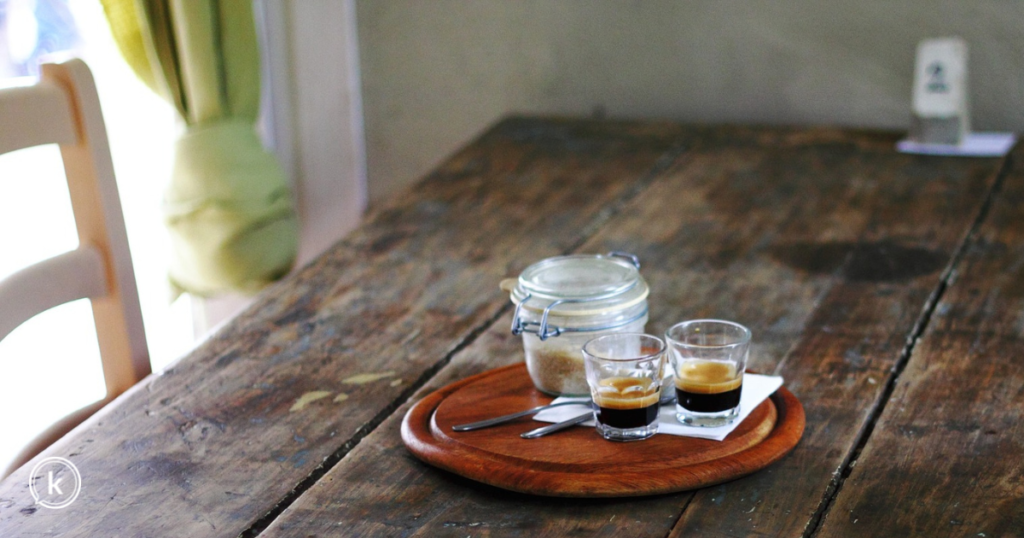Faith
What a little light can do
With the glorious colors of fall also come darker mornings and afternoons. Not having the glow of morning sun to greet us can be difficult for those of us who don’t rise early enough to be greeted by darkness year-round. Even as a morning person (my kids laugh at how early I go to bed!), there’s something defeating about making my way into the kitchen or family room in the dark.
I started using light timers to facilitate an easier entry into my fall and winter days. Though I’d used them for years to automatically turn on lights in the afternoons and evenings, having them click on in the mornings was something new. And I discovered how much I liked feeling the living areas of the house were already “awake” when I entered them.
But there was another—lovely and unexpected—spiritual boon to this electronic tactic I’ve been using…
Read MoreFinishing strong: questions for fall self-reflection
I just can’t help myself.
It must be something about the season: hints of fall and kids returning to school always prompts introspection in me. (Even though my nest is empty, years of my own schooling and those of my kids have me conditioned!) I purposefully use this time of year as my second of two “life check-in” junctures.
I do my annual spiritual inventory, self-reflection and (personal and professional) goal-setting every January. In late August/early September, I check in on those items again, course-correcting for anything that’s gone awry and thinking carefully about how to best use the remainder of the year for God’s glory.
This year the exercise feels especially significant as I’ve relocated to a new state. That transition has, as you might expect, come with a significant amount of change (and a very quiet blog/newsletter—huge “thank you” to my subscribers for their patience!).
Here are the questions I’m asking myself; perhaps they’ll prompt something valuable in you, too, with which to forge ahead into the rest of the calendar year:
- With the growing seasons of spring and summer waning: How have I grown in recent months? What part of my life has God nourished especially (even if it’s different than I anticipated or hoped)?
- Fall is the time when many plants need pruning to weather the winter: What might God be asking me to let go of or cut back on for health and future growth?
- As school resumes for students: What is God teaching me right now about Himself? About myself?
- Fall will eventually give way to cool weather: Who around me needs to be drawn near for the warmth of fellowship? How can I fortify new and existing relationships against difficult seasons that might lie ahead?
When James wrote to the Jewish Christians scattered abroad, he reminded them how important it is to not merely hear the Word but to internalize it and live it out. He used the metaphor of a mirror: that God’s law provides us with a reflection that reveals to us the dirt on our faces (sin). To walk away from the mirror without choosing to wash off the filth (repentance, trusting in Jesus’ sacrifice), is utter foolishness.
For if you listen to the word and don’t obey, it is like glancing at your face in a mirror. You see yourself, walk away, and forget what you look like. But if you look carefully into the perfect law that sets you free, and if you do what it says and don’t forget what you heard, then God will bless you for doing it.
James 1:23–25 NLT
While this seasonal check-in doesn’t address our moral failings (that should happen daily!), the spirit of the exercise is the same: we may have “forgotten what we look like” somewhere along the way, so let’s return to the mirror to see what God is doing in our lives and how we can respond in faith.
What we miss when we read the Bible alone
I’m a sucker for a good story.
I know you are, too. We can’t help it. God hardwired it into our brains. Functional MRIs show how our brains respond to stories (versus information)—more areas of the brain light up and with greater intensity. And even newer research has shown something fascinating: our heartbeats seem to synchronize when we hear a story at the same time, in a shared experience.
How. Cool. Is. That?!
While this is obviously relevant for my work with speakers in crafting their content, I think there’s a treasure here for followers of God, as well.
Read MoreThree vital ways using our voices shapes our faith
As an introvert, whose nervous system goes into hyperarousal with too much stimuli from sound and light, I often opt for quiet, introspective, individual faith-building practices like reading or prayer. (This is also why welcoming my kids home for visits means I have to gird myself for the steady stream of music! But having them home is worth every loud minute.) I’ve been thinking a lot about voices of late as part of my work as a public speaking coach/consultant. As I’ve reflected, I’ve come to better appreciate how significant our voices are to growing in faith.
Three ways voices play an important role faith-development:
Read MoreHow to build (and maintain) friendship in an era of division
I could not relate to what she was saying. If I may be candid, I was even a bit turned off by what my friend was sharing with me. I felt the urge to disconnect rise up inside me: Well, I guess I know not to broach *this* topic again in the future.
And then there are the times when I’ve shared my thoughts and experiences with a friend only to have her expression reveal how surprised she was to uncover a difference where we’d previously seemed to share a sense of sameness. I’d wonder whether our friendship had a future; if our friendship had been built on common ground, would this quake bring its demise?
There have been similar instances in many of my friendships over the years. I used to think it meant I hadn’t found the “right” people to have in my life… that if I kept searching, I’d be able to surround myself with people whose perspectives always aligned with my own. On every topic.
I know, I know… it seems a bit naïve to me, too, when I see it written out in black and white.
And yet, I think—even if only subconsciously—it’s how most of us are interacting with the world. We allow our differences to drive us apart. And the result is a loneliness epidemic. There’s a good bit of research detailing this reality, some of which I’ve written about and referenced before. If the statistics tell even part of the story, about half of us are without even a single meaningful friendship. And while we can’t control all the reasons—and certainly will not lay blame at the feet of those who are ailing from a lack of friendship—there are things we can do differently for ourselves and for others.
Read MoreWhen you don’t know you’re sick (or somehow forgot)
Is there anything scarier than being sick and not knowing it?
Okay, there probably is. But I find the idea of an undetected illness terrifying. (Just me?)
If you’ve been following Jesus for any length of time, you’re undoubtedly familiar with our sinful nature being likened to an incurable disease that we’re all born with as descendants of Adam. When we trust in Jesus as our Savior we are “cured” through a righteousness transplant of sorts.
Related: New DNA in Jesus (an article I wrote for Our Daily Bread based on an amazing true story)
In Luke 5, Jesus rebuts the Pharisee’s criticism of His willingness to spend time with sinners saying “Those who are well have no need of a physician, but those who are sick. I have not come to call the righteous but sinners to repentance.” (Luke 5:31, 32 ESV)
At first reading, it appears Jesus is describing the gaggle of social outcasts sitting at Levi’s table as being “the sick.” Indeed, they were all spiritually sick and in need of a Savior. And, as the religious elite, the Pharisees knew it too—that’s why they questioned Jesus for associating with them.
While that description may be accurate, it’s not the entirety of what Jesus was communicating. In a poignant way, He was holding a mirror up to the Pharisees, reminding them of the truth contained in (what we call) the Old Testament, asking them to recognize their own spiritual sickness.
This passage should make us uncomfortable, friends. Not because we’ve spent time at Levi’s table as a sinner. We all have! Knowing that about ourselves is what enables us to receive Jesus’ gift as the unfathomable grace that it is.
It should make us uncomfortable because it asks us to see how we’re like the Pharisees.
The Pharisees knew they carried the gene that predisposes us to sin and separation from God—remember, they were the religious experts.
And yet they ended up with hearts far from God, prideful over their position in the Jewish social structures and distancing themselves from those they deemed unseemly. Somehow, it seems they’d forgotten they, too, were ill.
Read MoreOn the other hand…
“You might be immobilized for five or six weeks,” my doctor said.
Ugh.
The possibility of not being able to use of my dominant hand for that length of time struck a chord of fear in this pessimist’s heart.
But my shoulder needed repair so I scheduled it—despite the potential downtime. (I had a similar surgery on my left shoulder about 10 years ago, the hilarious precursor to which I shared here.)
The good news: The surgery is now behind me and I had a better outcome than anticipated—I’m already in rehab.
The bad news: I still don’t have full use of my right/dominant arm.
Read MoreWhen past hurt makes friendship feel scary
He addressed him as “friend.”
“Friend, do what you came to do.” (Matthew 26:50 ESV)
Jesus knew what his friend Judas—one of the close-knit group of disciples—was about to do: betray Him into the hands of His would-be killers. Most of us wouldn’t consider that kind of betrayal a mark of a friend.
Yet Jesus still calls Judas “friend.”
Puzzled by this, I wondered at first if it was just the translation I was reading. Nope, the word “friend” is in every translation I checked.
- Jesus replied, “Do what you came for, friend.” (NIV)
- Jesus said to him, “Friend, why are you here?” (RSV)
- But Jesus said to him, “Friend, why have you come?” (NKJV)
That’s because it’s in the original Greek version. In Greek, the word is ἑταῖρος.
According to Strong’s it means “a comrade:—fellow, friend.” So there’s really no trying to redefine the word the way Jesus used it.
Why does this matter to us?
Read MoreHow to make forgiveness a habit
Habits.
I’ve got some good ones: Flossing. Exercise. Budgeting and bank reconciliations.
And I’ve got some bad ones: Phone pick-ups. Dirty chai lattes. Returning shoes. (I have yet to diagnose the reason behind my lack of ability to commit to a shoe purchase.)
I’m intentional about habit-building. I have regular goal-setting sessions (not just at the beginning of the year) and often ask myself what habits and disciplines I need in order to achieve those goals.
Given this proclivity, it’s easy to see why my ears perked up when someone applied the word “habit” to Matthew 18:21-22.
Read MoreThe painful (and sometimes funny) discovery of blind spots
When the irony fell on us all at the same moment, we dissolved into gales of laughter.
Fourteen of us sat around the conference room table in Chicago. It was an opportunity to gather with colleagues; most of us had never met in person.
On the first morning of our two-day confab, we encircled that table, sharing what we hoped to glean from our time together. I voiced my desire to identify blind spots in my role as a trainer and facilitator; that desire was written on the glass-covered pink wall alongside the hopes expressed by my cohort.
And then we dug into the work: learning, discussing, asking questions, practicing, and receiving feedback. It. Was. Awesome. I am a better trainer because of the insightful comments of my colleagues. Our day’s efforts were rewarded with a hearty meal and an evening outing. My night concluded in a smaller group, waxing philosophical in oversized chairs in the hotel lobby.
When I made it to my room around midnight, I fell into bed exhausted and wholly satisfied.
But sleep didn’t come quickly. My introverted nature got the better of me after a full day of activity. Like an overstimulated toddler who didn’t get to nap on time, my nervous system was in hyperdrive and I laid awake until after 3am.
Read More









